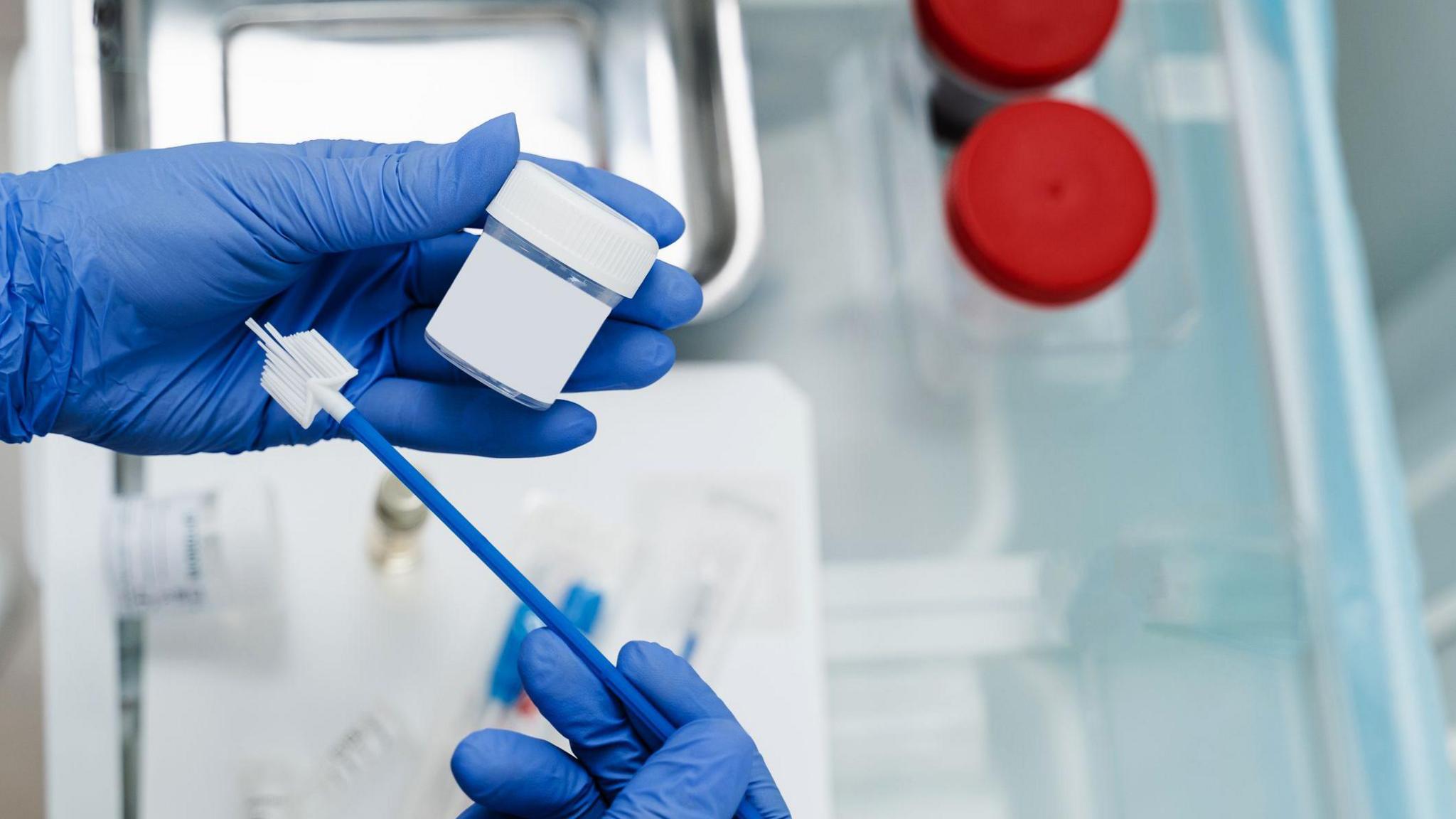Reports provide 'no outcome' for women impacted by misread smear tests
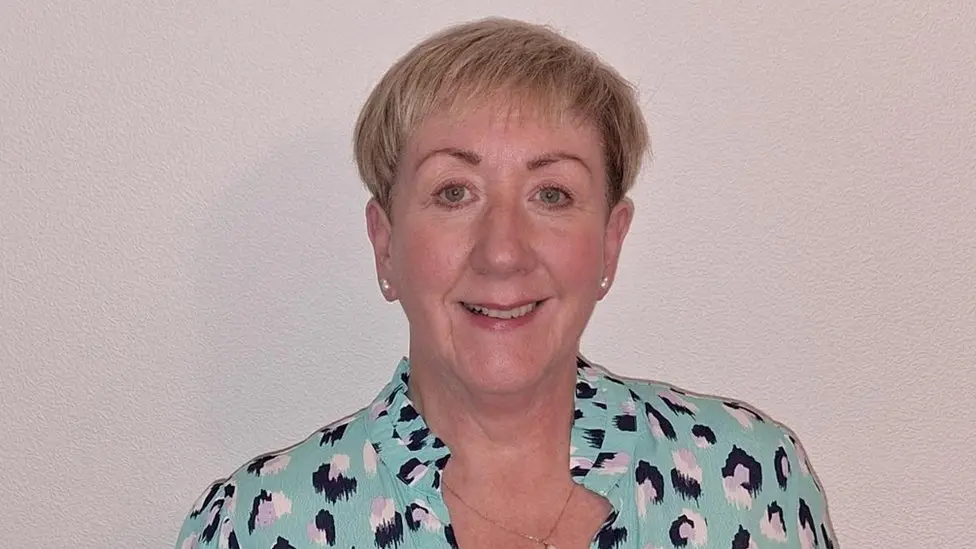
Heather Thompson is from the campaign group Ladies with Letters
- Published
A campaign group have said they are disgusted there is still "no outcome" for the women impacted by misread smear tests within the Southern Health Trust, after three reports were published on Wednesday.
There have been calls for a public inquiry into what has been described as a "scandal" within the service, which led to around 17,500 women being approached to have their smear test results rechecked.
Health Minister Mike Nesbitt has announced an expert review into the reports, however, he stopped short of ordering a statutory public inquiry.
Heather Thompson, of the campaign group Ladies with Letters, said it is unbelievable there is going to be another report instead of an inquiry.
"These reports are never ending," she told BBC Radio Ulster's Evening Extra programme.
Ms Thompson added this has been going on two years, in which time some of the women affected have died before getting answers.
She said the people coming to Ladies with Letters want to know "who allowed this to happen" and "who is going to take accountability".
"That won't be given in these reports, we will not get those answers the ladies will not get those answers and that's what ladies are entitled to – the truth and transparency."
What were the key findings?
The reports found that some women who had been diagnosed and treated for cancer had been retraumatised after they were again contacted by the Southern Trust about abnormalities discovered during an audit of their cases.
This process – known as disclosure – was so badly handled that patients complained that they were misled about the gravity of the news they were to receive, with some going without a family member because they thought it was a routine appointment.
Others spoke about feeling intimidated in a room full of medical staff, with some women feeling "shocked" , "horrified", and feeling "it was a washing away of the truth".
The reports referenced previous reviews which called into the question the performance of some screeners in the Southern Trust. They said some staff had been underperforming for many years, and the managers in charge of them had failed to properly tackle underperformance.
Staffing levels in the laboratory had been insufficient to deal with the workload, and the quality of the service suffered because of numerous shortfalls.
However, the reports also found that between 1997-2021 there was "no statistically significant difference" in the number of cervical cancers diagnosed in the Southern Trust compared to the Northern Ireland average.
The laboratory was described as "risk averse" and had introduced "additional level checking".
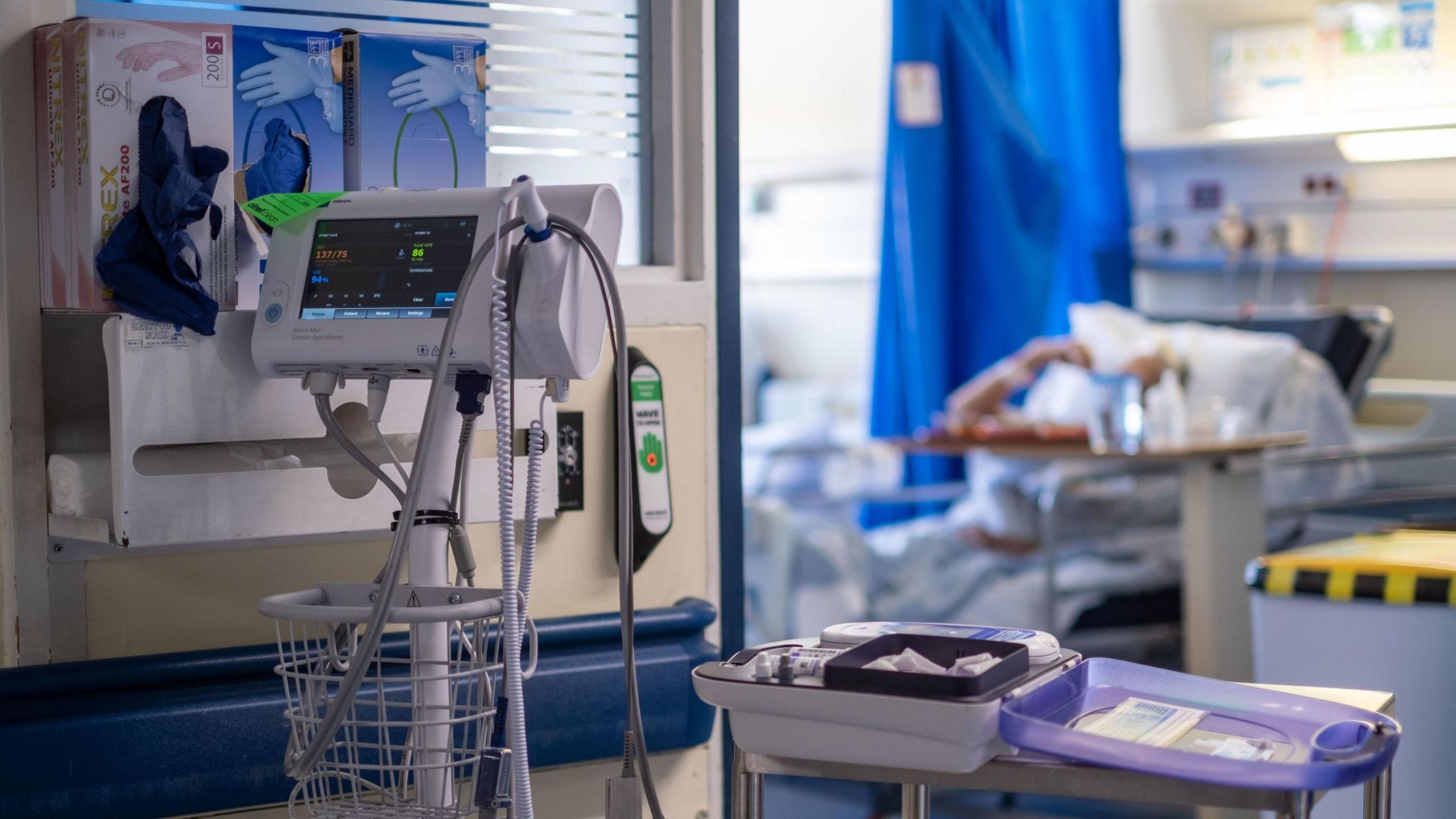
The Trust's own review found eight women whose smear tests were misread by screeners went on to develop cancer
Nesbitt said he knew this was a "difficult and challenging time" for those affected but he remains committed to understanding the circumstances which led to the "precautionary review of cervical cytology in the Southern Trust".
He also said he wanted to reassure the public that there would be not wait for the system to be improved with changes in already in force.
These include the full implementation of HPV testing (human papilloma virus testing) – a better and more reliable automated test- since December 2023 and the establishment of a single regional laboratory for these tests in Belfast in November 2024.
However, Dr Joanne McClean, Director of Public Health at the PHA told BBC News NI that due to issues with machinery some tests are currently being sent to England.
"The machines had been due to be replaced, they hadn't been working over periods of time, whenever that happens rather than allow a backlog to build up they are sent to Gateshead," she said.
Dr McClean said the target time for waiting on results is two weeks, this had been met for periods over the summer, but now the vast majority are getting results within six weeks.
She accepted this was "too long" but said work was ongoing to correct this.
Dr Stephen Austin, Medical Director at the Southern Trust, said the latest reports have been "exhaustive", but said the trust welcomes the announcement of a further review.
"The trust apologises once again to all women who have been impacted by the cervical screening review," he said.
"The trust is committed to ensuring these failures do not happen again. We have examined in detail the findings in these latest reports and many measures have already been put in place to address past failings."
"I think you can say the Trust did fail them," Dr Austin told BBC Radio Ulster's Evening Extra programme.
"I think but the steps taking place now is to recognise that, acknowledge that and move forward."
The Public Health Authority (PHA), said although it had identified concerns in relation to the Southern Trust laboratory, there were gaps in how the concerns were communicated to the trust.
It apologised to those affected and said it is committed to implementing all recommendations in the reports in full.
Why were there three reports?
The three reports were published at the same time because Health Minister Mike Nesbitt said they related to the "full cervical screening pathway" and needed to be viewed in their entirety.
The first document is an independent expert opinion on the Trust's Cervical Screening Review and was carried out by consultant Allan Wilson from NHS Lanarkshire and Graham Brown, a consultant with Public Health Wales.
The second report looked into the Serious Adverse Incidents (SAIs) of 12 patients who were found to have "unsatisfactory" results as part of an audit into their cases. It was led by independent chair Olive MacLeod, and included cytology expert Margaret Morgan.
The third report was carried out by NHS England into Northern Ireland's Public health Agency, looking at how it oversees quality assurance of the cervical screening programme in NI.
Analysis: What does this mean?
This is the clearest picture we have yet of the difficulties in cervical screening within the southern health trust.
Three reports detail what went wrong and provide learning going forward.
While many of the details have been revealed before, they do reaffirm that individual screeners underperformed but also that leadership and oversight were lacking when things were going wrong.
But for many of the women affected, the reports raise more questions, including why the health minister "has chosen to ignore" their calls for a Statutory Public Inquiry.
On Monday the health minister Mike Nesbitt said he had "a next step in mind", but yet another report or, what he has called an independent expert review of all the published cervical reports to date falls short and kicks the can down the road on an already long-running story.
The next steps lie with the health minister as he awaits this latest independent review which is expected early next year.
But for the thousands of women in the southern health trust already affected by this "scandal", this prolongs an already drawn-out process and further adds to anger and frustration.
What was the cervical screening review?
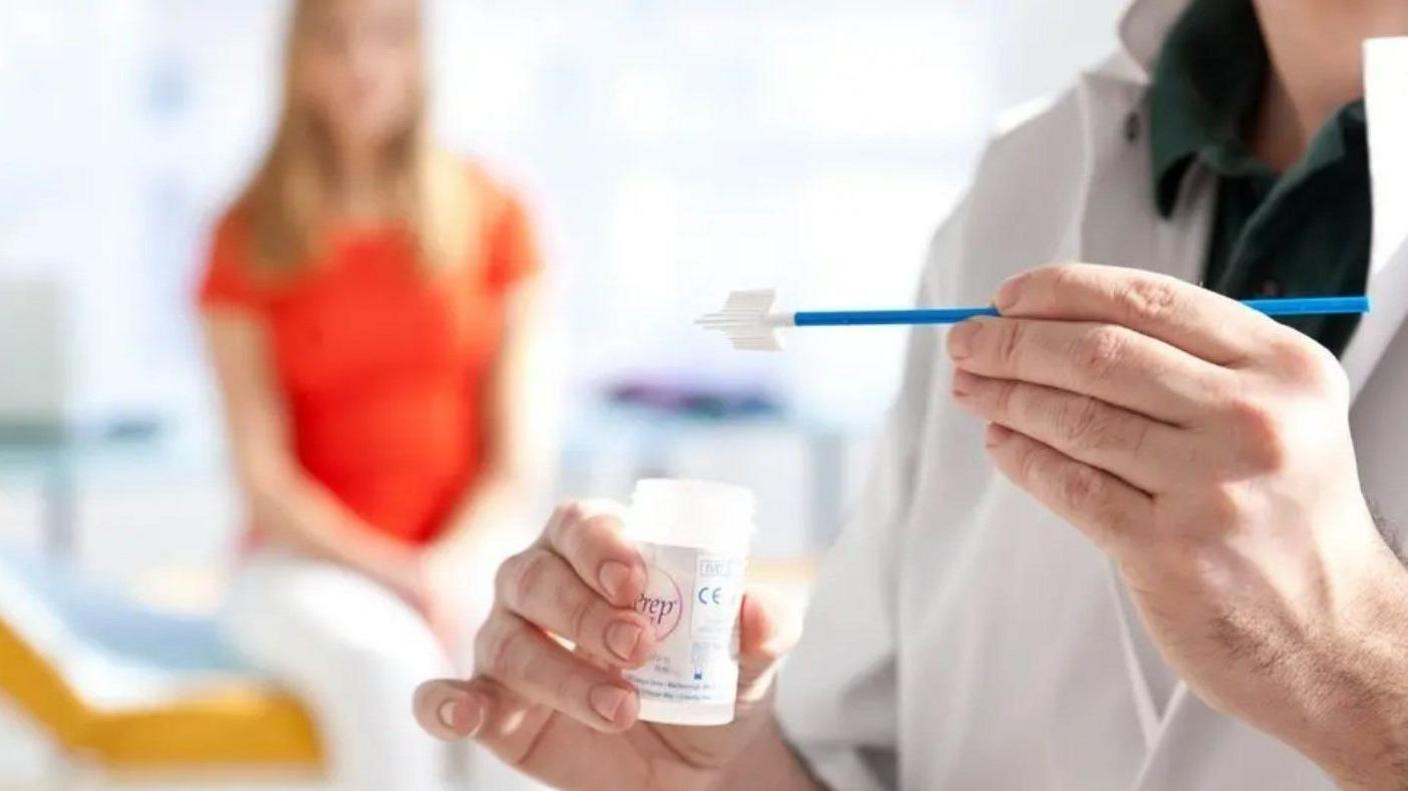
In October 2023, BBC News NI revealed about 17,500 women in Northern Ireland are to have their smear tests re-checked as part of a major review of cervical screening dating back to 2008.
The Trust's own review found eight women whose smear tests were misread by screeners went on to develop cancer.
Letters were sent out by the trust to those impacted and Ms Thompson was among those to receive a letter that their test was affected.
The independent reports into the screening programme were commissioned following the Trust's own conclusions which were published last December.
As well as the eight mentioned, a further 11 women's slides were found to have pre-cancerous changes in the cells when they were reviewed and had to receive treatment.
All these women had either pre-cancerous changes to their cervix or were diagnosed with another significant gynaecological condition when their smears were reviewed.
The Southern Health Trust apologised to all those affected at the time.
The review into the screening service was triggered when the diagnoses of three women were investigated as a Serious Adverse Incident (SAI).
Two of the women, Lynsey Courtney and Erin Harbinson, have since died.
In October 2023, the Southern Trust announced a precautionary review of the cervical screening results of 17,425 women screened between 2008 - 2021.
The move was in response to an independent Royal College of Pathologists (RCPATH) report which found "persistent underperformance" in the work of some laboratory screeners.
- Published11 December 2024

- Published3 July
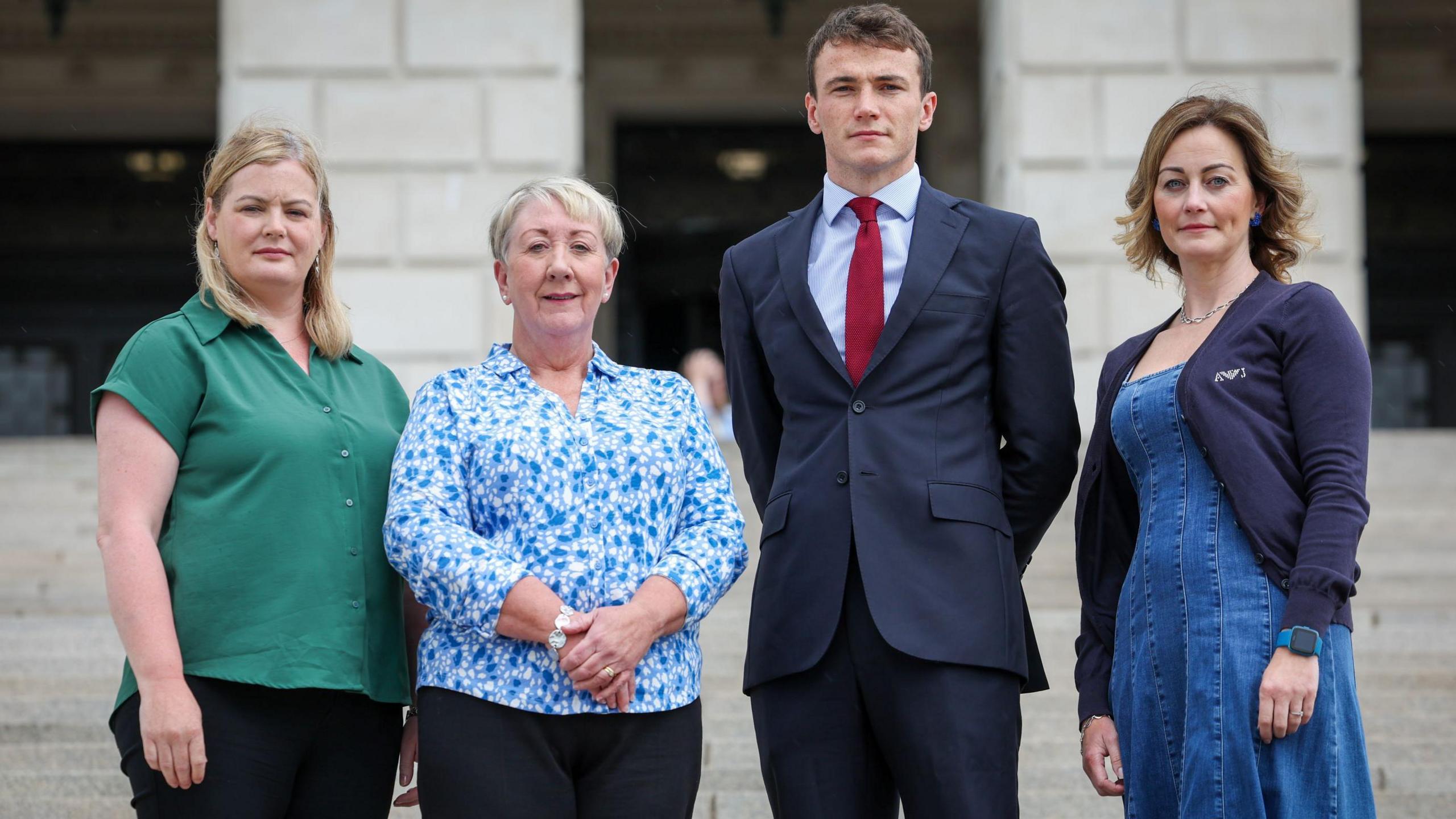
- Published11 July 2024
